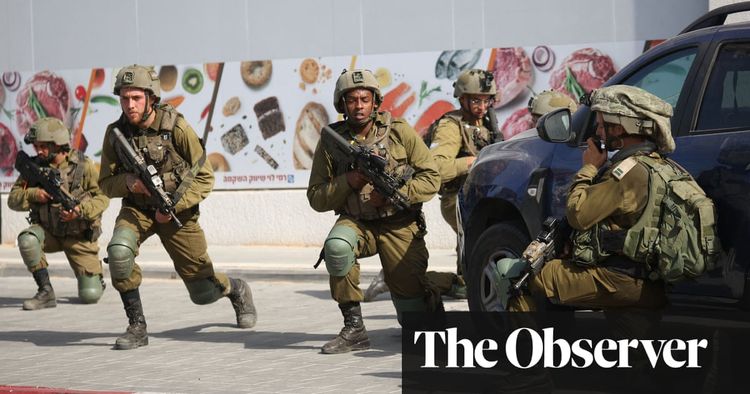Israel attack is Hamas imposing itself on wider Middle East diplomacy

Right after the sudden attack by Hamas on Israel, there are two important questions that arise: what was the intention behind the attack, and why did they choose this time to do it?
While Israeli prime minister Benjamin Netanyahu declared that Israel was in a state of war with Gaza factions, including Hamas, it is crucial to grasp the objectives of Hamas' military actions. Hamas engages in these conflicts periodically for political motives - to strengthen its support within Gaza and beyond, and to maintain its significant presence in the political arena.
The military leaders of Hamas understand their limitations. They cannot occupy and control areas in Israel. Their recent actions of abducting and murdering Israeli civilians indicate they planned to create fear and get attention from people all over the world.
Although the immediate reasons behind the conflict between Israel and Palestine are crucial, such as the long-term occupation, the underlying factor behind the current attack seems to be the broader situation in the region. Particularly, the growing normalization facilitated by the United States between Israel and Saudi Arabia may be a significant factor in the timing of this assault.
In spite of the Palestinian Authority's lack of power and significance under President Mahmoud Abbas in Ramallah, the attempts made by Washington, beginning with Donald Trump's Abraham Peace Accords and continuing recently under Joe Biden, to outsource significant parts of the Middle East process through separate agreements with the Gulf nations were never certain.
For a long time, both the United States and Saudi Arabia have recognized that any advancement towards normalizing relations depended on progress towards creating two separate states. The main obstacles were perceived to be an Israeli government on the far-right, which was thought to be unwilling to make concessions, and the Hamas movement in Gaza, which was not involved in the negotiations and had the potential to disrupt progress.
For a while now, there have been people in Israeli politics, with Netanyahu as a leading figure, who have advocated for a peace process that includes the Palestinian issue as a minor part of the bigger process. Their aim is to present the peace agreement to the Palestinians as a done deal. However, Hamas has always been aware of the consequences that such an approach could bring upon them.
It's unexpected how the connection between Saudi Arabia and Hamas, which had been intricate and sometimes tense, seemed to be improving early this year. A group from Hamas traveled to Riyadh, their first visit in seven years. This happened while Saudi Arabia was shifting its focus towards China and building a better relationship with Syria's president, Bashar al-Assad. As a result, Hamas felt like they had a chance to improve their relationship as well.
Examining Hamas' motives for initiating this assault will probably take a long time, particularly since Israel, which has the most knowledge about the situation, was caught off guard by these considerations. As a result, it will be difficult to obtain a complete understanding of the situation in the immediate future.
The truth is that Hamas opted to instigate this conflict at this particular time and in the manner that it did, as a means of imposing itself in the broader diplomatic realm. Although the attack has been portrayed by Hamas as a reaction to Israeli military activity in and around the al-Aqsa mosque in Jerusalem, this portrayal is merely a disguise.
One common belief among Middle East analysts and reporters is that there is a significant difference in the way the ruling elites of Arab nations perceive governance compared to the opinions of the general public in those countries. This perception has existed for a long time.
The conflict between Israel and Palestine has highlighted a split that Arab nations have had to navigate publicly, even if they have expressed their unhappiness with Abbas' leadership. The commander of Hamas' military, Mohammed Deif, stated in his announcement of the assault that the people are reclaiming their revolution. Deif urged Palestinians living in areas ranging from East Jerusalem to northern Israel to participate in the fight. It appears that Hamas sees the attack as a way to take back control of the Palestinian story.
Although the Al-Aqsa dispute is popular and there are rising tensions regarding the site, Hamas's attack is serious and appears to be intended to provoke a large-scale Israeli response against Gaza. This would result in many civilian casualties. Deif's message to the "Islamic resistance" in Syria, Iraq, and Lebanon was targeted at countries with militant movements supported by Iran. This included Hezbollah in Lebanon.
It's evident that there are parties benefiting from the conflict apart from Hamas.
Previously, there have been minor incursions from Gaza, but this attack has shattered the notion that Israelis, who have invested billions in security measures, are protected within their borders. This is a matter that will not have gone unnoticed by Hezbollah in Lebanon and extremist organizations in Syria.









































































